Peadar O’Donnell, Part 4 – Irish to the Core Weekly Blog 38
In weekly blog 36 I discussed the O’Donnell Clan exploits in the 1590s leading to the defeat of the Clans in 1602 at the pivotal Battle of Kinsale. Five years later the Flight of the Earls led by Rory O’Donnell ended the O’Donnell dynasty in Ireland.
There have been many influential and notable descendant O’Donnells since that time. Today I want to discuss one very important man who was involved in the Irish Revolution in the 20th century, Peadar O’Donnell. Peadar was a radical Republican, social activist, politician, and writer. He survived the Rising, became a flying column leader in the War of Independence in Donegal, and continued fighting as an anti-treaty irregular to liberate all of Ireland during the subsequent Irish Civil War.
He came from a socialist family near Dungloe, Donegal who believed in the Larkinist movement, that is unionized civil unrest without military action. James Larkin established the Irish Transport and General Workers’ Union in 1909, attempting to gain better working conditions for the common man. James masterminded the Dublin Lockout of 1913 with 20,000 laborers participating. This was unsuccessful except that business owners accepted the principle of unionization. As a result, James Connolly took over from Larkin and established the Irish Citizens Army (ICA) whose members did participate militarily in the 1916 Easter Rising.
With his beliefs, Peadar did not fight on behalf of the rebels in the Rising. Instead, he attended college at St Patrick’s near Dublin at that time. Having witnessed the British brutality during and after the Rising, Peadar soon realized that the British needed to be driven out of Ireland.
After teaching briefly on Arranmore Island and trying unsuccessfully to organize a unit of the ICA in Derry, Peadar joined the IRA and became a flying column leader in Eastern Donegal and Londonderry during the War of Independence, (1919-1921), raising to the position of Northern Volunteer 2nd Brigade Commander. His unorthodox methods ran afoul of his IRA leadership.
After Michael Collins and Arthur Griffiths negotiated the Anglo-Irish Treaty in 1922 which separated the Southern 26 counties as a new Republic, many of the IRA fighters chose not to accept it. They wanted all 32 counties liberated, an ideal that was not possible due to British interests and firepower.
Peadar was an Anti-Treaty fighter in the Irish Civil War (1922-1923) and on the IRA Army Executive. He participated in the capture of the Four Courts causing the Battle of Dublin. When Pro-Treaty forces recaptured the Four Courts, Peadar escaped only to be recaptured. He spent the rest of the war in prison and went on a 41-day hunger strike afterward to get the government to release IRA combatants.
He subsequently attempted to establish socialist organizations with the remnants of the defeated Anti-Treaty IRA to support common workers. This ended in failure. In 1934 O’Donnell left the IRA with other socialists to form the alternative Republican Congress. After some success the IRA finally quashed this organization.
After 1940, Peadar turned away from politics to writing. He wrote seven famous novels including ‘Islander’ and one play in addition to three autobiographical accounts. After WWII he became editor of the literary journal ‘The Bell’.
In 1985 he wrote his last piece, ‘Not Yet Emmet’, an account of the Treaty split of 1922. He died at age 93 in 1986.
He was therefore a pivotal freedom fighter and chronicler who contributed to the Irish Revolution and lived to write about it.
Peader O’Donnell (slight name change) plays an important role historically and fictionally throughout my Family Saga novel series ‘The Irish Clans’. Intriguing.
Stephen’s novel series “The Irish Clans” can be purchased at https://amzn.to/3gQNbWi







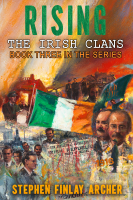

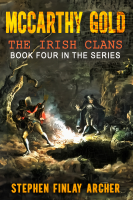

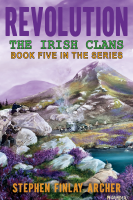



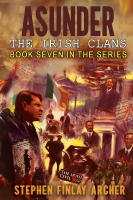

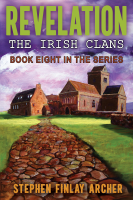

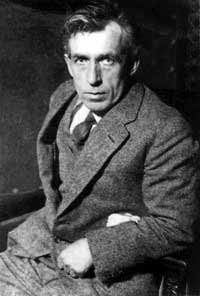

0 Comments